Otura Aira (Otura Ogunda)
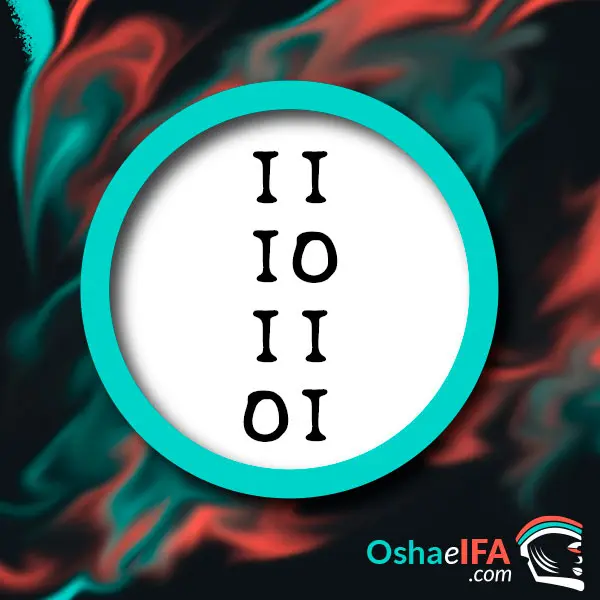
Otura Aira (Otura Ogunda), is Sign number 205 in the Lordly Order of Ifá, addresses the essential separation of human beings into good and evil, establishing a framework for Yoruba ethics and morality.
General description of the Odu of Ifa Otura Aira (Ogunda)
Otura Ogunda (Otura Aira), the distinction between good and bad is born, deeply marking the Yoruba worldview. This sign speaks of consecrations, divine rewards manifested in riches such as jicoteas and money, and the essence of justice through the figure of the fox.
Names or Nicknames
- Otura Ogunda.
- Otura Aira.
- Otura Egutan.
What is born in the Odu Otura Aira?
- The grouping of human beings between good and bad.
- The consecration of Oruode, the night hunter.
- A Babalawo made a reservation and, as a reward, received 1000 jicoteas and a considerable sum of money.
- It is the Ifá associated with the fox.
What does the Ifá sign Otura Aira talk about?
- Addresses issues of justice and surgery.
- Oroiña, Ogún's mother, raised him in an effeminate manner.
- The initiation of the person at the foot of Sarabanda is indicated.
- Orunmila cried because of his resentment towards his children.
- This Odu's lack of consideration for people is mentioned.
- There is talk of the stinking weed (Eweto Mode) (Guanine).
- It is necessary to offer a goat to Eshu to solve problems.
- Ogún's pieces are duplicated, except for the anvil.
The sign Otura Ogunda points out:
- Ogún held the world on his shoulders.
- The person could try to make an attempt on his or her own life.
- There are curses directed towards the person.
- A key is added to Ogún.
- There is an Egun that causes the mother to become an enemy of Otura Aira.
Explore the strength and character of Ogun, the orisha of iron, war and work, fundamental in Santería.
Analysis and Interpretation of the Otura Ogunda Sign
Otura Ogunda teaches us about the importance of consecration and respect for the rituals and traditions that connect us with the divine. The reward of a thousand jicoteas and economic abundance to Babalawo highlights the value of fidelity and righteousness in our spiritual practice. This Odu invites us to reflect on our actions and their repercussions on the fabric of life.
Economic Aspects:
The generosity of the universe toward those who maintain their integrity is a reminder that true prosperity comes to those who serve with a pure heart. Economic success, then, is not only a result of our material efforts, but also of our alignment with spiritual principles.
Health:
Otura Ogunda warns about the dangers that our own actions can pose to our physical and spiritual health. The mention of the possibility of an attempt on our lives underlines the importance of taking care of not only our body, but also our mind and spirit.
Religious Aspects:
This Odu emphasizes the need to strengthen our spiritual practices, whether through the consecration of Oru-Ode, the night hunter, or the double strengthening of Ogun. Eshu's presence and protection reveal the complexity of our relationships with the orishas and the power of divine mediation.
Personal relationships
The influence of an Egun that can cause enmity within the family reminds us that personal relationships require our constant attention and care. The ability to purge negative energy and heal divisions is crucial to maintaining love and harmony.
In summary, Otura Ogunda (Otura Aira) is an Odu of introspection and purification, which calls us to evaluate our life and our actions in the light of justice and truth. It teaches us that each individual has the power to influence his or her destiny through righteousness, respect for traditions, and connection with the divine.
Recommendations:
- Maintain Spiritual Integrity: Living and acting righteously and faithfully to our spiritual practices and beliefs attracts prosperity and divine protection.
- Strengthening Religious Practice: Strengthening connections with the orishas, especially Ogun, through rituals and offerings, is crucial to ensuring their support.
- Attention to Mental and Spiritual Health: Taking care of our emotional and spiritual well-being is essential, avoiding self-harming actions.
- Care in Family Relationships: Work on maintaining harmonious relationships within the family and pay attention to negative influences.
- Purge Negative Energy: Clearing our environment and being of negative energies regularly maintains a healthy flow of spiritual energy.
- Reinforce Ogun with 101 pieces of iron: Specifically for the Awó, reinforcing Ogun with 101 pieces of iron and, in cases of Awafakan and Ikofafun, doubling his tools (except the anvil and the Ochosi) and adding a key, strengthens protection and spiritual power.
- Consecration at the foot of Sarabanda: Because of this sign, it is recommended that the person undergo a consecration (scratching) at the foot of Sarabande, enhancing spiritual protection and the link with divine forces.
Prohibitions:
- Avoid Inconsideration: Refrain from attitudes and actions that show a lack of consideration or respect for others, as this can have negative consequences.
- Don't Abuse Loved Ones: It is important to avoid any form of abuse or neglect towards family members, as this can attract negative energies and conflicts.
- Reject Envy and Greed: These emotions can corrupt the spirit and distance the protection of the Orishas, so gratitude and generosity must be practiced.
- Prohibition of Self-Destructive Actions: Any behavior that may represent a danger to oneself, including suicidal thoughts or actions, should be avoided.
- Don't Ignore Spiritual Signs: It is essential to pay attention and act according to the warnings and messages received through dreams or signs, to avoid future problems.
Sayings of Otura Aira:
- A fed dog cannot play with a hungry one.
- When no one is around, two can fight to the death.
- Not even the King is more than me.
- Among human beings there are good and there are bad.
- To be okay, I have to purge the bad.
«To be good, I have to purge the bad» emphasizes the need for spiritual and personal cleansing to maintain well-being. It indicates that to achieve a state of peace and health, it is necessary to actively eliminate negative influences from our lives.
You can also read: Sign of Ifa Ogunda Tetura
Says Ifa odu Otura Aira:
- The importance of agriculture: Planting corn symbolizes connection to the earth and abundance. This activity reflects the need to work and cultivate our resources to ensure our livelihood.
- Calm and patience: Tranquility is key to achieving happiness. This point highlights the importance of maintaining serenity in the face of life's challenges.
- Spiritual purification: The need to eliminate accumulated negative energy to restore personal and spiritual balance.
- Overcoming pride: The importance of controlling pride and obstinacy to live in harmony with others and with divine precepts is emphasized.
- Recognition of divine authority: Orunmila remembers that the orishas and saints have the final say in our lives, urging humility and respect for spiritual forces.
- Value relationships: The importance of caring for those who love us and not taking their presence and support for granted.
- Future prosperity: The promise of achieving economic well-being and peace as a reward for our actions and devotion.
- Protection against envy: The need to protect ourselves from the bad intentions and negative thoughts of others.
- Gratitude towards the Orishas: Specifically to Shango, Oya and Orunmila, for their guidance and protection. Each plays a crucial role in overcoming obstacles and achieving well-being.
- Spiritual strength: The creation of a spiritual vault and the offering of a goat to Eshu highlight the importance of strengthening our spiritual defenses and seeking the favor of the orishas to achieve our goals.
- Oparaldo for spiritual cleansing: This ritual is crucial to eliminate negative influences, especially those that affect family relationships.
Treaty of the sign of Ifa Otura Aira (Ogunda):
- Otura Aira is an Ifá sign that emphasizes the need to eliminate negative energy from the person, which requires purification to release negative spiritual energy.
- In this Ifá, Oroiña, Ogun's mother, raised him in a homosexual environment, and he was considered effete.
- It was then that an Awó made a reservation and, as a reward, received a thousand jicoteas and a considerable sum of money.
- Otura Aira proclaimed: "Not even the King is more than me."
- This is the Ifá of the fox, which focuses on justice and surgical operations.
- In this Odu, the person has a great gift of clairvoyance. He puts on a spiritual vault and, in his room, a cup with a cedar crucifix and a small steel ball.
- Eshu (Elegua) protected Otura Aira, although he lacked the ability to approach Olofin directly, until Shango granted him this power.
- The Eshu of this Odu includes Oduara (lightning stone), a silver coin and tiger leather.
- Orunmila, overcome with resentment towards his children, found comfort and control in Shango.
- This Oddun marks the origin of the division of humanity between good and evil.
- Those who possess this Odu are usually underestimated by society.
- Associating with the bearer of this Ifá can be dangerous, as it is said to steal luck.
- For illnesses, the ebo is placed in a gourd and buried at the foot of a hill, seeking concealment and connection with Olorun. The ebo includes a rooster and two doves.
- The herb associated with this Odu is Eweto Mode (stinking herb or guanine) and myrrh.
You can also read: Oddun of Ifa Otura Meyi
Meaning of the Odu of Ifá Otura Aira
When an Awó faces this Ifá in contexts of loss (Ofo), illness (Eyo) or conflict (Iña), he must take Ogún to the mountain to perform a specific ritual. After performing Ebo in his home and offering a party to Ogún and Ebo, he heads to the mountain with Ogún and Ebo, where he offers a small dog, a rooster and three pigeons. Next, he cleanses Oggún with Omiero made of eight herbs, then applying sarao-eko, abundant cocoa butter and cascarilla.
Otura Ogunda reveals the presence of an Egun (spirit) that generates enmity between the mother of the Awó of Otura Aira and her son/daughter. To counteract this, a Paraldo is performed on the affected person, whether Awó or Apeterbi. The clothing is torn on the person, performing the Paraldo naked, followed by a bath exclusively with Omiero from the herb Espanta Muerte (Aberikunlo).
This Ifá instructs you to prepare three güiritos with ingredients such as jutía and smoked fish, corojo butter, toasted corn, cocoa butter, cascarilla, liquor, bee honey, ero, obi, kolá, osun naború, obi motiwao, gold, silver and copper . To these are added the blood, legs, wing tips, heads of three jio jio (small chicks) and dirt from the entrance of the house.
In Otura Aira, a banana (etu) is offered to the earth. The Iyefá of this Odu will include stinking grass (eweto mode) and its pods will be used in Ebo. The orishas that participate in this Odu are Shangó, Eshu (Elegba), Orunmila, Oyá, Oroiña, Yemayá, Oshun, Osanyin, Ogún, Ode and Olofin.
This Odu emphasizes the importance of paying homage to Eshu, orunmila and Shango.
The Awó of Otura Aira must have Osanyin complete and offer beef blood to Ogún.
It is suggested to place a white flag at the entrance of the house.
This sign tells how Ogún held the world on his shoulders, raised by Oroiña in an unconventional way.
Otura Ogunda offers guides to overcome challenges in life and the spiritual realm.
Attention should be paid to dreams, anticipating future leadership.
Tips from Otura Ogunda:
Ifá advises that gratitude to Orí (the spiritual head) and an essential female figure can open paths. Performing head prayer (kobo-ori) is key to solving problems.
The Awó must consecrate his wife as a saint, which will result in significant benefits.
It is recommended to offer a goat to Eshu to resolve pending issues.
The birth of a child is predicted, for which it will be necessary to perform Ifá.
This Odu highlights the connection with natural elements, like a special stone in the field, which must be protected for use in spiritual practices.
Finally, it is advisable to offer two yellow chickens to Oshun in the river, strengthening devotion and the bond with this divinity.
Prayer of the Oddun Otura Ogunda:
OTURA AIRA IRE AYE TIMBELAYE IRE ILE OSANYIN OTURA AIRA OGUNDA IRE OGUN ALAGUEDE INLE MORUN OGUN YE MOWAYE OGUN ONIRE OBARABANIREGUN ORUNMILA IRE META EBO ASHEGUN OTA LESE OGUN.
Ebbo (work) by Otura Aira to wash the house.
To carry out the ebbo (work) of Otura Aira with the aim of purifying the house, the following procedure is followed:
Take a watermelon and cut it in half. One of the halves of it is dedicated to Yemayá, placing it on a platter, face up, and covering it with a red cloth. The water extracted from this half, after seven days, is used to clean the inside of the house.
The other half of the melon is offered to Ogún, accompanied by smoked jutía and fish, corojo butter, toasted corn, cocoa butter and husk. The water collected from this portion, after seven days, is used to clean the exterior of the house.
This ebbo seeks to harmonize and purify both the interior and exterior space of the home, invoking the protection and blessings of Yemayá and Ogún.
Patakies of the Otura Aira sign
The hunter
Once upon a time there was a hunter who was the breadwinner for his family. For several days he failed to catch anything, which left him with nothing to take home. One day, his luck changed when he hunted an elephant. After the hunt, he lay down under a tree and, coincidentally, a myrrh fell into his mouth. The sweetness of the myrrh, added to the fortune represented by the hunted elephant, filled him with great satisfaction. In a moment of euphoria, he exclaimed: "Not even the King is more than me!" Just at that moment, the King's soldiers were passing by the place and, upon hearing this proclamation, they honored him and gave him a considerable sum of money in recognition. IFA FORE AYE… Jicotea and parrot feather.
Explanation: The story of the hunter teaches us the importance of perseverance and self-confidence. Although he faced days without success, his efforts were finally rewarded, reminding us that we should not give up in the face of adversity. The moral highlights that our blessings can come in unexpected ways and that our worth is not measured by social position, but by our character and actions.
The man who attempted his life
In a small town, a completely happy man lived with his wife and children. During a local celebration, he met a woman of extraordinary beauty, his contemporary, to whom he was immediately attracted. This woman, accustomed to a life of luxuries and pleasures, decided to enter into a relationship with him motivated by economic interest. Using witchcraft, she got the man to abandon his family to start a life together.
As time passed, the man began to feel embarrassed and dominated by his new partner. Despite being aware of his infidelities and lack of respect, he chose to turn a blind eye to the situation. However, one day, upon unexpectedly returning to her home with the intention of surprising her, he found her in a compromising situation with her own eldest son. The humiliation and pain led him to make the tragic decision to take his own life.
Explanation: This story serves as a warning about the dangers of getting carried away by momentary passions and the importance of valuing and preserving family ties. Furthermore, it highlights the devastating impact that decisions driven by desire and manipulation can have on our lives and the lives of those around us.
Otura Aira Ifa Traditional
ÒTÚRA ÒGUNDÁ
A yin yin
to yin yin
A yin yin n yin yin
Awo ilé Orúnmìlà
Àwon ló día fun Òrúnmìlà
Níjó tÍfá n sehun eyìín kárí ayé
Wón niwo Òrúnmìlà
Ìwo ni o lòó móo tún ilé ayé se
Òrúnmìlà béè
Ní n wo Olókùrùún yè
Ní n jáwé
Ní n wa egbó
Ni nnkán n yìn in lówó
Eni tí ò romo bí n bímo
Ágàn towó ààlà bosùn
Aboyún ile n bi tibi tire
Ení or bí
Won ó kú
Won n yin Òrúnmìlà
Òrúnmìlà n yin àwon Babaláwo
Àwon Babaláwo n yin Ifá
Ó ní béè làwon Babaláwo tòún wí
A yin yin
to yin yin
A yin yin n yin yin
Awo ilé Orúnmìlà
Àwon ló día fun Òrúnmìlà
Níjó tÍfá n sehun eyìín kárí ayé
Àyinkan
Àyìnkàn láà yÀyin
Enu tee bá mu yin Èdú
E mómò pa á dà
Àyinkan
Àyìnkàn làá yin àyin
Mòrànhin moranhin làá wíràn oyin
Enu tee mú yin Èdú
E mómò pa á dà
Mòrànhìn moranhin làá wíràn oyin
Àwídùn mómó làá wíràn iyò.
Ifá says that he wants this person to be well. He is exhorted to make sacrifice so that people pray for him because of his good deeds.
A yin yin
to yin yin
A yin yin `n yin yin
He is the priest of the house of únrúnmìlà
They were the ones who made divination for Òrúnmìlà,
On the day that Ifá was performing acts of praise around the world
You Òrúnmìlà, they said
You must go and mend the whole world
Únrúnmìlà did as he had been told
He was successfully curing the sickly
He was harvesting leaves from the woods for medicine
He was uprooting the roots
He was praised for his actions
Those who did not have any children would have children
The sterile would get pregnant
Pregnancy would give birth to both the baby and the placenta
Those who already had children
The children would not die
They were praising Òrúnmìlà
Òrúnmìlà was praising his Babaláwos
The Babaláwos were praising Ifá
He said that it was exactly as his Babaláwos had said
A yin yin
to yin yin
A yin yin `n yin yin
He is the priest of the house of únrúnmìlà
They were the ones who made divination for Òrúnmìlà,
On the day that Ifá was doing things of praise around the world
It is with witty praise
It is with witty praise that one should praise Àyin
The mouth you use to praise Èdú
Don't change it
Witty praise
It is with witty praise that one should praise Àyin With sweetness, one will speak of the taste of honey
The mouth you use to praise Èdú
Please don't change it
With sweetness, one will speak of the taste of honey
With sympathy one will talk about the experience of tasting salt.
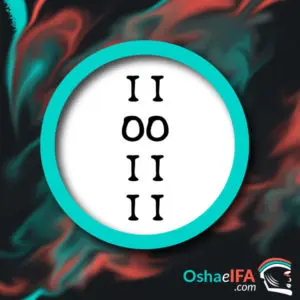

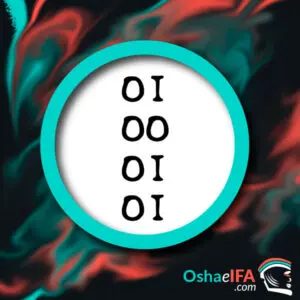
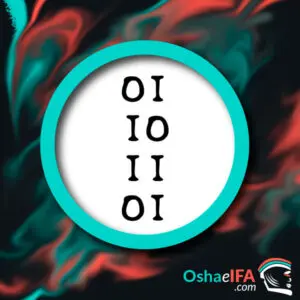
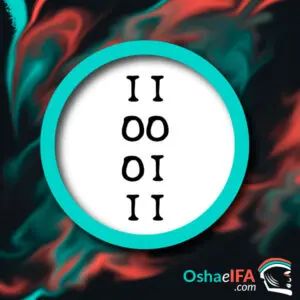
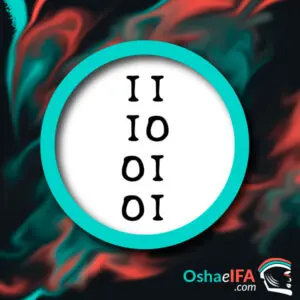
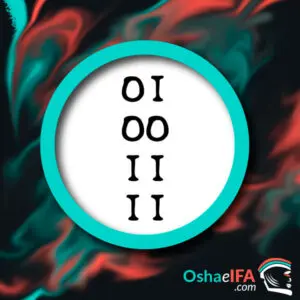
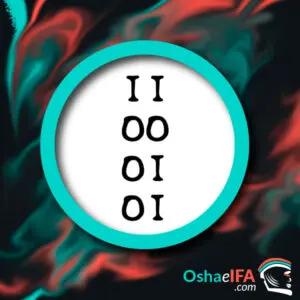

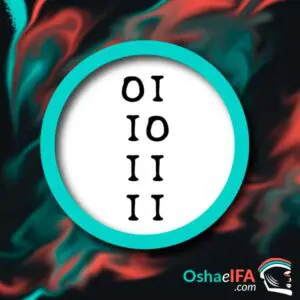
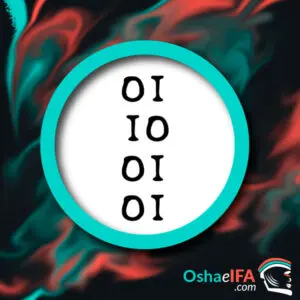
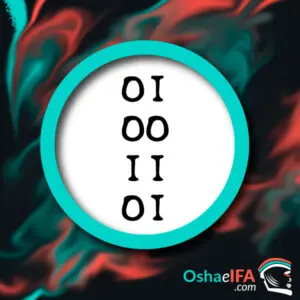



the best format
Grateful
I am an otura aira in ifa and I don't always get much information about it, thanks for the contribution
I really love and enjoy this explanation of otura aira my great odu